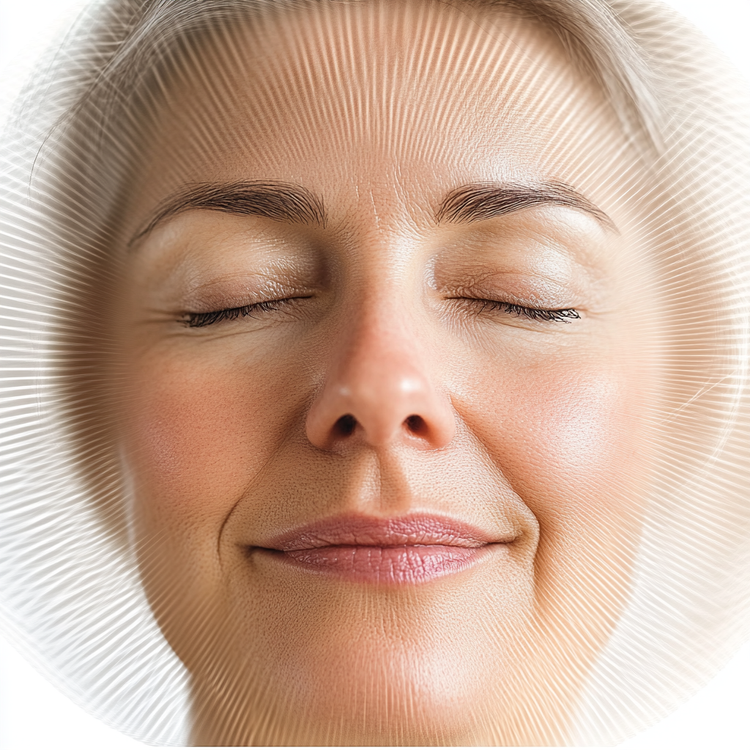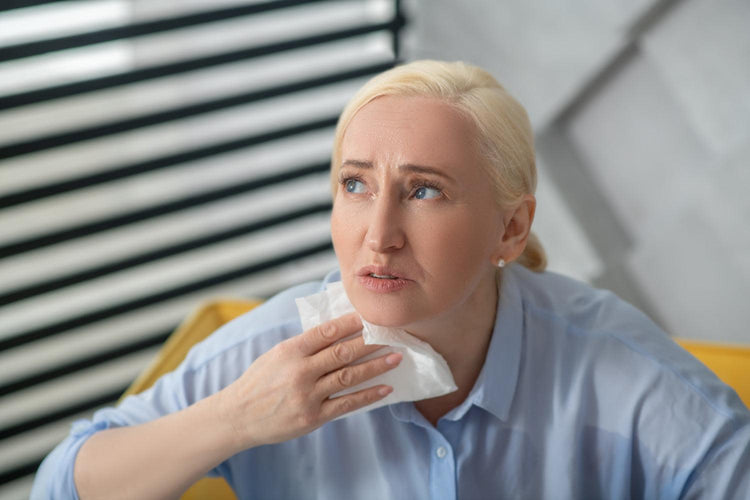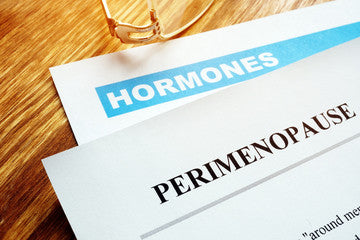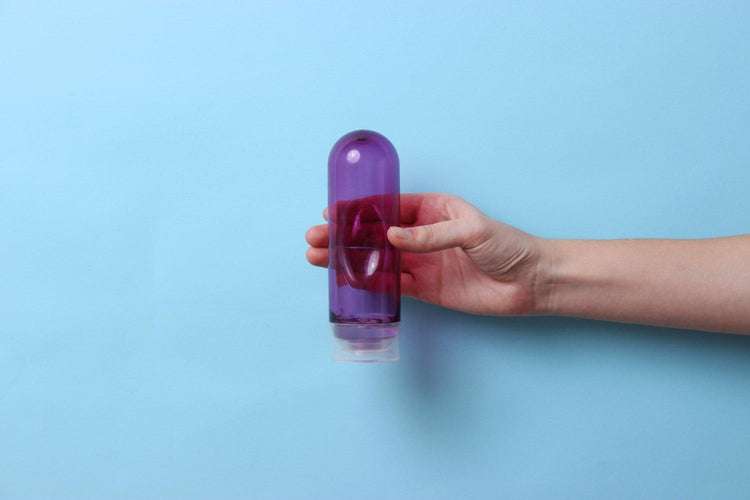
 Instagram
Instagram
Signs HRT Is Not Working
.png?v=1665762927076)

Related products
What’s covered?

Introduction
Hormone replacement therapy is a popular treatment for hormone imbalances. But the benefits and risks of HRT vary widely based on your age and medical history. The most effective way to determine whether HRT suits you is to consult an endocrinologist specialising in hormone balance. This article will help you understand when it's time to start taking hormones and how to choose the best option for your needs!
Hormone replacement therapy (HRT)
HRT therapy relieves menopause pain through hormone replacement therapy. It helps reduce oestrogen levels in women when they have experienced menopause. Oestrogen and progesterone are feminine hormones that are essential in the human body. Lowering adolescent levels are responsible for several psychological and physically inflammatory conditions, including cold and irritated skin. During this time, HRT will increase oestrogen levels, relieving many women.
Overview
Hormone replacement therapy (HRT) is hormone therapy for women and men. Hormones are chemicals that tell your body what to do. HRT replaces hormones lost as you age or after certain illnesses. It is used to treat symptoms caused by menopause or ageing. You can also use it to treat other conditions, such as infertility issues in women, low testosterone levels in men, osteoporosis, and heart disease caused by low oestrogen levels (men).
It restores the levels of female hormones that are declining as a natural consequence of going through menopause. Oestrogen and progesterone are female hormones that have significant functions in a woman's body.
Here's How to Get Started with HRT
If you're a woman in your 40s or 50s, you may be experiencing the early symptoms of menopause. That's right—it's time to start thinking about hormone replacement therapy (HRT).
But before you start taking any medication, it is essential to talk to your doctor. You don't want to jump into something without knowing what you're doing. Your doctor can help you figure out what type of HRT is best for your individual needs.
You can begin treatment as soon as you feel like you're having menopausal symptoms. Menopause is a natural part of life. It happens when your body stops producing oestrogen and progesterone. During menopause, the ovaries stop releasing eggs and making sex hormones like oestrogen and progesterone. It can cause changes in your body—like hot flushes, night sweats, vaginal dryness, weight gain and more. These symptoms can make you feel uncomfortable and frustrated. But there are ways to manage your symptoms, like wearing loose clothing, drinking water and exercising. You may also want to use hormone replacement therapy (HRT) to treat menopausal symptoms.
Signs HRT Is Not Working
Have you been on HRT for a while but still feel symptoms of low oestrogen, progesterone or testosterone? Are you experiencing new symptoms that didn't go away when you started HRT? If so, it could be time to adjust your dosage. Here are some common signs that indicate your hormone levels need to be adjusted:
You seem to be tired most of the time
And not just tired; you are exhausted and feel like you are dragging yourself around.
Reduce sexual drive
Menopause does not often seem like the flirtiest moment in a woman's life, but it is even worse if we are on the improper or wrong HRT.
Because of this, we are not only dealing with the sensory overload and the fallout it is generating throughout our bodies. But we also risk lowering testosterone levels if we stop producing enough of it. This is a part of the problem. When our adrenal glands become preoccupied with the production of stress hormones, we cannot produce an adequate amount. When our ovaries stop producing hormones, the work of manufacturing our sexual hormones is intended to be taken over by our adrenal glands. Still, if they are under too much stress, they won't be able to do it very well.
You have sleep problems
The leading cause of this issue is synthetic HRT which means you are dealing with pretend progesterone in many HRT cases. The "real" progesterone is considered a calming hormone, while the pretend progesterone is regarded as an exciter hormone.
Side Effects
HRT side effects are a common concern for trans women. Oestrogen and progesterone are essential to transforming your body into one that's more aligned with your gender identity, so that you may experience minor discomfort during this transition. Common side effects include:
-
Mood swings
-
Moodiness
-
Irritability
-
Insomnia (trouble sleeping)
If you have any of these issues, talk to your doctor. They can help you reduce or eliminate these symptoms by adjusting the dosage of your hormone therapy or by prescribing additional medications to treat them. You should also be on the lookout for severe mood swings or irritability; if they occur regularly or become devastatingly disruptive to your life, reach out immediately!

When should you not take HRT?
-
If you have a history of blood clots, it is usually not recommended that you take HRT.
-
Suppose you have a history of breast cancer or uterine or endometrial cancer. In that case, it is usually not recommended to take HRT.
-
If you have a history of stroke or heart attack, it is usually not recommended that you take HRT.
-
Suppose you have a history of liver disease (cirrhosis). In that case, it's best to avoid hormone replacement therapy since it can increase the risk for liver tumours and non-alcoholic steatohepatitis (NASH). In addition, those with hepatitis C should avoid oestrogen-containing pills because they can cause an acute flare-up of the disease.
-
Women with pre-existing heart disease should avoid taking hormone replacement therapy because it has been linked to an increased risk for blood clots and strokes.
How to Choose the Right HRT for You
Choosing the right HRT for you is crucial. Please speak with your doctor about the benefits and risks of HRT and its possible side effects. It's also essential to choose a type that suits your needs. For example, a pill might be best for you if you're looking for relief from hot flashes. If you want more energy or better sleep quality during menopause, a patch may be better suited to your needs.
Once you've decided what type of HRT is right for you (and have weighed all the pros and cons), it's time to consider dosage and delivery method: How much do I need? Should I take my dose once every day or twice daily? What are my options if I do not like needles? These questions can help determine which delivery method best suits each patient's goals. It also minimises potential side effects during treatment by using an appropriate dosage at an effective frequency per day/week/month depending on individual preference (or according to one's physician).
Choose the right HRT for you. Initially, HRT is generally administered at low doses. In some cases, doctors can redirect it to the next dose. Once you take this medication for several months, you can see whether the treatment works. If not, try another type or increase the doses accordingly. You should consult the doctor when symptoms of HRT occur.
Benefits and Risks
While there are benefits to taking HRT, such as a lower risk of heart disease and stroke, it's essential to remember that this treatment comes with some risks. These include the potential for stroke or blood clots (blood clotting), increased risk of vaginal cancer, deep vein thrombosis (DVT) and pulmonary embolism (PE).
If you plan on beginning HRT, talk to your doctor about ways to reduce these risks. For example, they may recommend taking a daily aspirin or another thinning blood medication if you're at risk for DVT or PE. In addition, your doctor may want you to limit your alcohol intake since heavy drinking can increase the chance that HRT will cause blood clots.
Many possible side effects are associated with hormone replacement therapy and those caused by oestrogen-progestin combinations. Some common symptoms include headaches; breast tenderness; abdominal bloating; hot flashes; joint pain; nausea; depression/mood swings/irritability and vaginal dryness (for women); erectile dysfunction/low libido (for men); loss of bone density leading to osteoporosis-related fractures (women only).
Weight gain
Many women believe the use of HRT helps to gain weight. You might get a little heavier in menopause, but that sometimes happens despite taking HRT. Eating and exercising regularly helps in maintaining good weight loss.
Alternatives
For many women, HRT is no longer an option. But that doesn't mean you have to suffer through menopause or other symptoms of hormonal imbalance. Some alternatives—including lifestyle changes and medical interventions—can help ease your pain, boost your energy and improve your overall quality of life.
Here are some options:
Lifestyle changes. These may include:
-
eating a balanced diet that focuses on plant-based foods (such as fruits and vegetables) over empty calories
-
exercising regularly
-
reducing stress through meditation or yoga
-
getting enough sleep each night
-
quitting smoking if you smoke cigarettes
-
drinking alcohol in moderation if possible (alcohol can have adverse effects on hormones)
-
limiting caffeine intake (caffeine has been shown to increase hot flashes in women taking HRT).
Medical interventions for menopausal symptoms. Many doctors will prescribe non-hormonal medications such as antidepressants or anticonvulsants like gabapentin to help manage hot flashes, night sweats and mood swings during perimenopause or after menopause has been reached ultimately. These medications also sometimes work for some women who experience sexual dysfunction associated with decreased oestrogen levels during this period due to oestrogen deficiency caused by lack of ovulation during their reproductive years before menopause). However, these drugs do not treat osteoporosis or breast cancer risk reduction. They're best used only temporarily while waiting for any alternative treatments discussed here, which may require months before any results become evident!
Hormone replacement therapy is not for everyone
Hormone replacement therapy is not a cure-all, and it is not a one-size-fits-all solution. HRT should be tailored to the individual, and your doctor will work with you to find the best treatment plan for your unique needs.
If you have been on HRT for some time and it does not seem to be working, there are many reasons why this may be the case. For example:
-
You are taking too much oestrogen
-
You are taking too little oestrogen (or too much progesterone)
-
You are taking an oral medication rather than an injectable form of oestrogen
Stopping HRT
There are no restrictions on taking HRT, but consult your doctor if your treatment takes more than three hours. Most women take this medication once their menopause symptoms have passed, usually for some years. Women on HRT have a greater risk for breast cancer than those not on HRT. Risk is a common feature of any type of HRT apart from vaginal oestrogens. After stopping the HRT, there is a decrease in breast tumour risk, but a higher chance is retained over more than ten years compared to women who haven't used the HRT. The decision to quit may happen instantly or gradually.
Talk to a specialist doctor
If you start experiencing menopausal symptoms, you'll likely desire hormone replacement therapy. It is important to note that although certain studies suggest that HRT does not pose a danger to cardiovascular health, it is still best to consult a specialist doctor before getting HRT treatment. It would help if you also asked about the possible risk of breast cancer or fatal blood clots once you start or stop HRT.
The decision to start or stop HRT is personal and should be made after consulting your doctor.
Conclusion
Hormone replacement therapy (HRT) is a safe and effective treatment for women who are experiencing the symptoms of menopause. However, not all women need to take HRT, and some risks are also associated with taking this medication. Overall, if you think hormone replacement therapy might be right for you—or if your doctor recommends it—then it's important to discuss the pros and cons. Doing this will help you make an informed decision about whether or not this kind of treatment is right for your body type and lifestyle needs.
Also, you must remind yourself that even if most women believe HRT promotes a healthy weight, there is no evidence to support this. Whether or not you take HRT, your weight will depend on your lifestyle. Choose to have regular exercise and consume healthy food to achieve your desired weight.
To view our information page and products for Menopause and HRTs, view our information page here.
To learn more about menopause and hormones, read our women's health hub by clicking this link.























 Rated Excellent by 26,523+ Reviews
Rated Excellent by 26,523+ Reviews